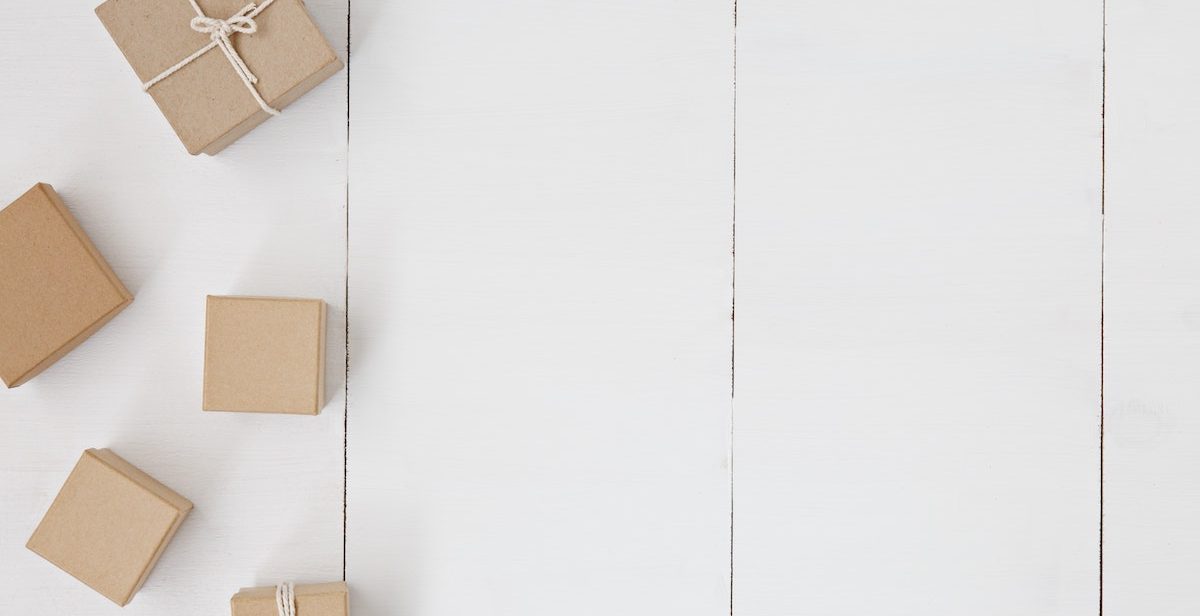There’s so much going on at Christmas, it’s hard to remember to think about single-use plastic and the impact it has on our environment. After all, the old adage tells us that: “Christmas is a time for giving”. You may be thinking of all the gifts you need to buy and wondering just how you’re going to get them all with lockdown still in place. Read on to discover how to avoid single-use plastic this Christmas.
With all of the stresses Christmas brings, in recent decades it’s felt as though the festive period were more about mass consumerism than giving.
Did you know that British people use 227,000 miles of Christmas wrapping paper each December? And a lot of it is made from plastic that ends up in landfill.
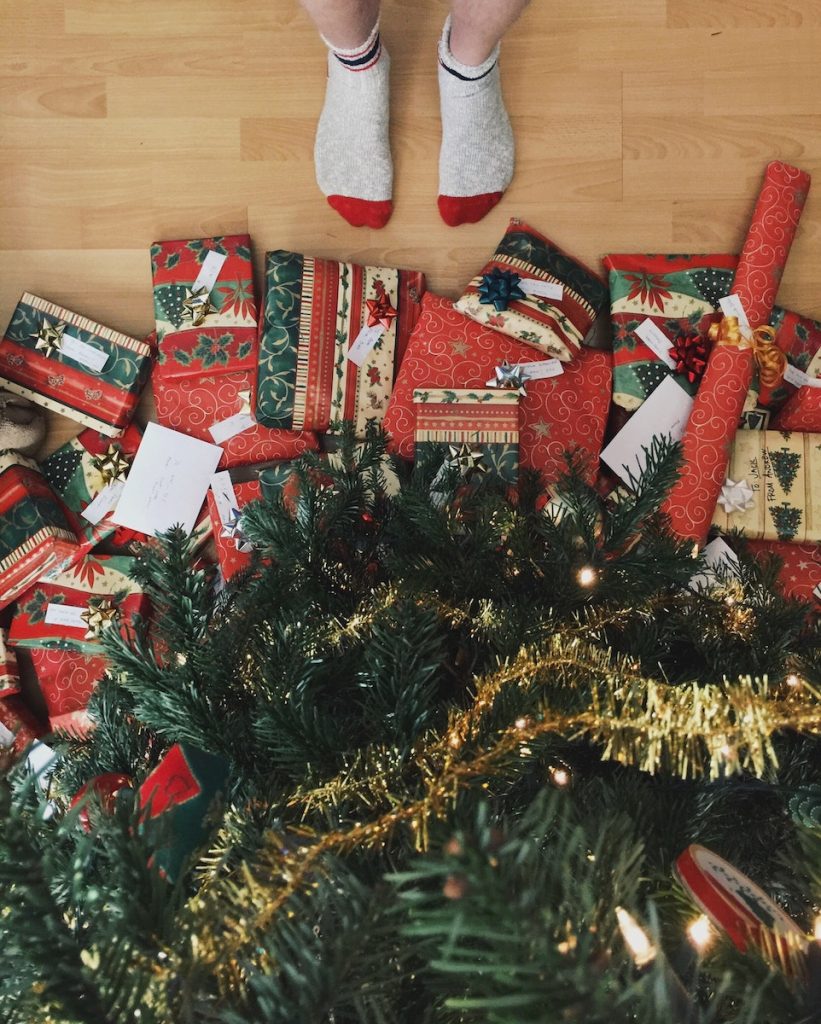
That’s not to mention all of the extra special food and drinks we buy that come wrapped in throwaway plastic. But this year is going to be different. We’ve been forced indoors. We’ve been socially distancing. Now let’s consider what we can do to avoid single-use plastics this Christmas and make the world a better place.
The preparation
Many people spend the last two months of every year preparing for Christmas. And if you’ve been stuck indoors this year, you may have had even longer than usual to contemplate the big day. Avoid single-use plastic this Christmas right from the outset, and it will be easier to continue the momentum right up to the big day itself.
1. Support local businesses
You’ve probably started your Christmas food shopping already. But unless you’re super-organised, you’ve no doubt got things left to buy. Brits ate an estimated 10 million turkeys and 175 million mince pies last Christmas. Just imagine how much plastic packaging supermarkets wrap those turkeys and treats with!
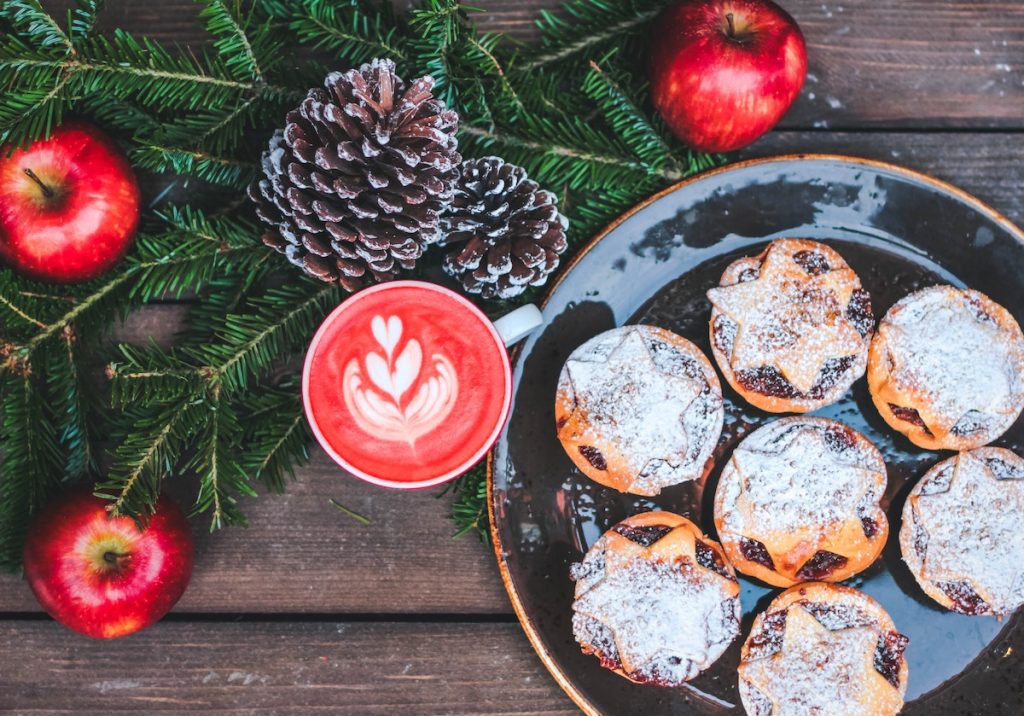
But if you support local businesses instead of supermarkets, you can drastically reduce that plastic waste. Buy your turkey from your local butchers, and they’ll probably let you bring your own packaging. And bakeries often sell their mince pies in paper bags rather than plastic trays. If your local businesses aren’t open this year, consider supporting a farm shop instead. The Farm Retail Alliance says this is a great way to reduce the amount of single-use plastic you use.
2. Get creative when it comes to wrapping
Do you want your Christmas wrapping paper to add to the landfill problem? Or would you rather be part of the solution? Avoid single-use plastic wrapping this Chritmas by getting creative with your Christmas wrapping paper. Wrap your gifts in newspaper, recycle old ribbons, or reuse paper from years gone by. And if you’ve been buying gifts online this year, another idea is to save the tissue paper that many products come wrapped in.
If you absolutely must buy wrapping paper, opt for plastic-free, recycled products. And don’t forget to recycle it after use. Re-wrapped sells cards and wrapping paper made from 100% recycled materials. And stay away from sticky tape if you can. Use natural string made from cotton, wool, or hemp, or put your gifts in old cardboard boxes instead.
3. Avoid plastic cards
In the run up to Christmas, you may find yourself sitting at the kitchen table, trying to remember exactly who you need to send a card to this year. If that’s the case, avoid cards made from plastic or those with glitter on them. While glitter may be an evocative reminder of years gone by, now is the time to change. Marks and Spencer made a pledge last year to have no glitter on their cards by the end of 2020. That’s because the little sparkly bits of plastic that make glitter so appealing to the eye often end up in the oceans where marine animals eat them.
So why not make your own cards this year? You can re-use bits of cardboard packaging and make collages out of old Christmas cards and magazines. If DIY is not your thing, choose recycled cards instead. And of course, put all your old cards in the recycling bin afterwards. Alternatively, save them for using again next year.
Another option is to steer clear of cards altogether. After all, the trend for sending cards began in a bygone era, before the age of the telephone and internet. Consider calling every single person on your Christmas card list instead. They’d surely love to hear you voice. And you can use it as an excuse to explain why you won’t be sending cards this year too.
The gifts
Everybody likes opening a present or two at Christmas. But the plastic waste that comes with them is scandalous. Put a bit of thought into your gifts this year, and you’ll find that avoiding single-use plastics isn’t that hard after all.
4. Support companies that limit their packaging
Many companies are doing their best to help you avoid single-use plastic this Christmas. Supporting them helps the planet and encourages other companies to follow suit. The Plastic Free Shop strives to sell completely plastic-free goods. And they work hard to ensure the products you buy don’t come wrapped in single-use plastic too. They even allow you to collect the gifts yourself if you live in or close to Bristol. And that will cut out the need for postal packaging entirely.
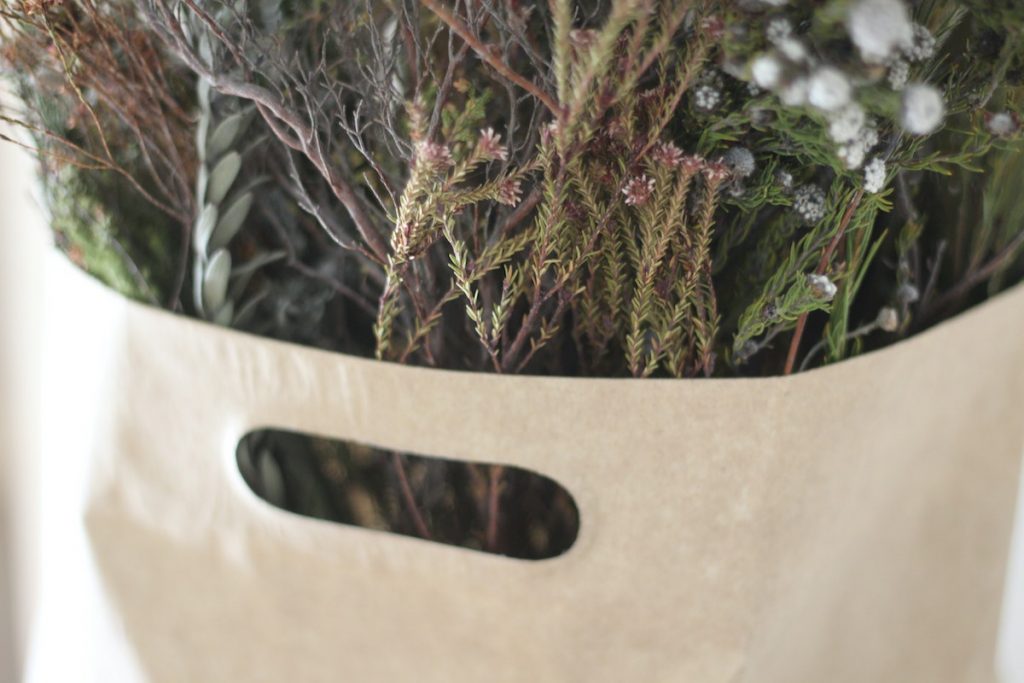
Tea-lovers in your family will love the stylish range of loose and bagged teas that the UK Loose Leaf Tea Company sells. And when you order from them online, you can ask for no plastic packaging. But there are plenty of other options online these days. For tasty treats, head to the Plastic Free Pantry. Or for plastic-free gift boxes, try Low Tox Box.
The table
5. Say no to crackers
Christmas just wouldn’t be Christmas without the Christmas crackers, right? But have you ever stopped to consider the sheer amount of plastic waste that ends up in the oceans after you’ve pulled your cracker, worn a silly hat for a while, and enjoyed a joke with Grandad?
Now could be the time to ditch the crackers and start a new Christmas tradition. Consider having a table game, making your own hats out of recycled objects, or making the kids a treasure hunt instead. You could even make your own plastic-free Christmas crackers. All it takes is a few cardboard tubes, some recycled tissue paper, and a bit of creativity.
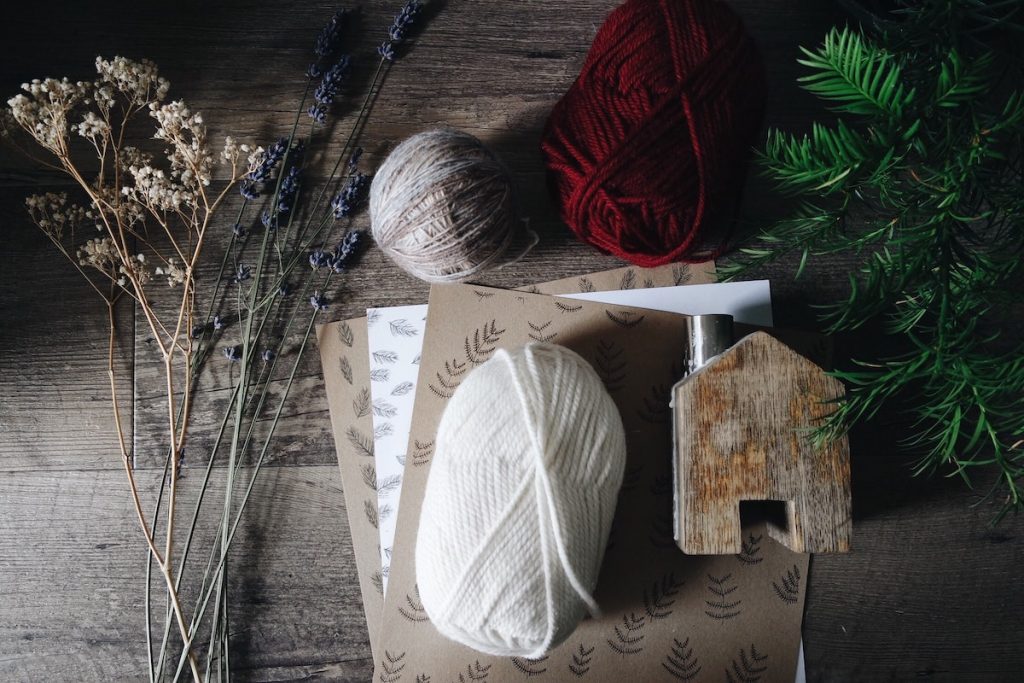
6. Bring nature into your home
Granted, the Christmas crackers are the things that make the table look like Christmas. But why not create your own, natural tabletop decorations instead? Slice oranges into rounds and dry them in a cool oven for delicious smelling, festive-looking tabletop decorations. Gather holly and ivy from your local woodland. Or decorate your table with natural candles, pinecones, and cinnamon sticks.
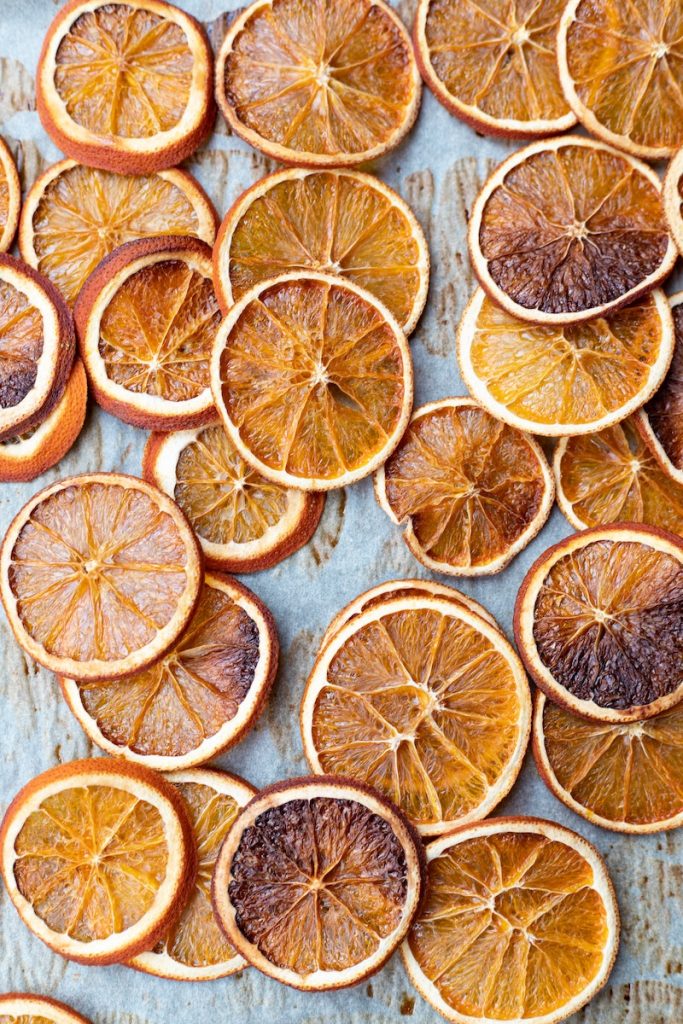
The possibilities are endless. But if you are making this Christmas extra special by bringing nature indoors, do be respectful. Be sure you get permission from whoever owns the trees before you start taking branches of holly and ivy.
7. Don’t go disposable
Using disposable plates and cutlery may save time at Christmas. But much of it is made of single-use plastic and it’s terrible for the environment. If you don’t have enough plates for all the courses you’ll be serving on Christmas Day, get in the habit of washing up between courses. Do it as soon as you’ve finished eating and it will be easier to stay on top of things.
Another alternative is to use products made from biodegradable materials such as paper plates and bamboo cutlery. Single Use Alternatives offers a wide range of eco- dining products. While any disposable product is worse for the planet than reusable ones, if you simply can’t face the washing up on Christmas Day, recyclable, compostable products are a far better choice than single-use plastic ones.
8. Make homemade yummies
At Christmas, you’re bound to eat more delicious snacks than you usually do. And if you buy them from the supermarket, the chances are they come wrapped in single-use plastic. So this year, have a go at making some of your favourite snacks yourself. You can make dips, chocolate truffles, mince pies, baked goods, and more in your own kitchen. And you’ll probably find they are way more delicious than the mass produced ones lining the supermarket shelves.
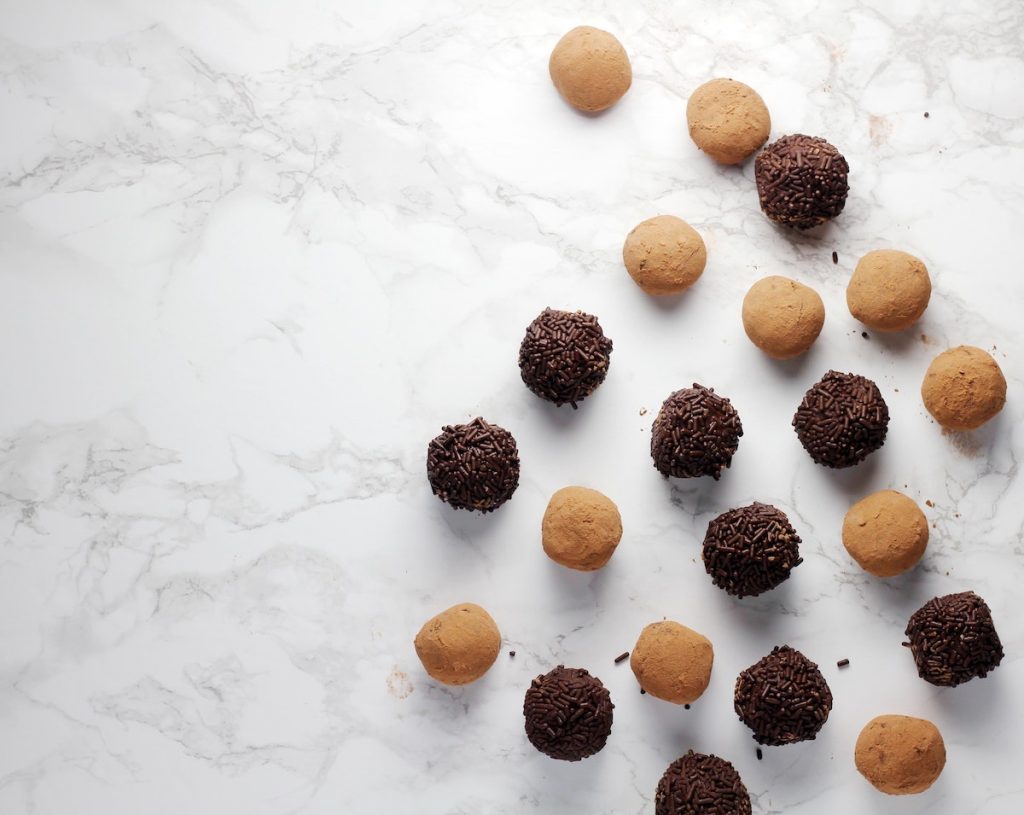
Final thoughts
Steering clear of single-use plastic this Christmas is the best gift you can give to the planet. Any bit of plastic you can avoid is another piece that doesn’t end up in the oceans. With a little bit of imagination, you can make this Christmas a truly memorable one. And if you’re spending time with children this Christmas, the fact that you avoided single-use plastic will be a lesson they won’t forget.
